Hold on! Devoting yourself to the struggle for liberation is a messy endeavor.
What it means to live for the people & sustain revolutionary momentum
A side note before I start—
Hi friends, some of you may know that due to the political nature of my work, especially around Palestine, I was flagged as a “high risk” account by Stripe. This meant all my Substack paid subscribers were about to be deleted/ erased. I’m committed to doing this work in a principled manner and to supporting mutual aid efforts locally & abroad. That’s not something I’m going to compromise on so I pushed back, raised hell, found a work around & the Substack team helped me salvage my subscribers. While I worked on resolving things, I paused all paid subscriptions so folks wouldn’t be charged. It should all be fixed now!!! Paid subscribers- check to see if you have access to the paid sections of newsletters. If you don’t, let me know. If you have financial constraints but want access, email me at ayeshakhan0993@gmail.com & I’ll add you
Thank you for standing by me & for being hella patient. I’m eternally grateful!
It’s October 2024. If you’re reading this, then you’re also struggling in some way to hold on— to life, and to the struggle for collective liberation. The last year has been rough & life-changing for us. If you’re here at all, that means everything to me. I’m grateful for you AND I want you to stay. I want us to commit to the struggle for collective liberation because our future depends on it.
But how do we resist the “boom & bust” pattern of activism that is oh so common the west? How do we SUSTAIN momentum & stay in movements in the face of overwhelming repression, isolation & odds? These are questions I’ve been grappling with for over a decade.
This is how the cycle goes:
An ongoing atrocity once highly publicized catches the attention of the western public—> there is a spark of rage, fury & grief that inspires people to come together and take it to the streets —> there is a wave of sudden momentum, mobilizing, desire for mass movement building & even some clear direction—> eventually this energy & newfound rage-driven mass momentum is co-opted, sterilized and channeled into liberalism (i.e. many people focus on begging politicians, electoralism etc) —> many people are stuck attending symbolic actions & one-off events lacking clear direction, structure or long-term vision —> simultaneously more radical direct action efforts attempting to target & disrupt these oppressive systems (however bold), also fail to last under crushing state/ institutional repression—> as a few weeks or months go by, there is no tangible systemic change while the atrocities rage on —> many people gradually lose interest since the “moment” has passed & become more emotionally distanced or disillusion, some burn out, some drop out when faced with the slightest of hardships like interpersonal conflict or discomfort when they’re challenged, others lacking clear grounding & accountability to community impede collective progress—> many groups collapse due to excessive internal ego-driven strife (catalyzed by both state repression & the weight of individualism)—> the movement itself loses steam due to the lack of numbers, coalition building & clear collective direction.
How do we break out of this reactive cycle? How do we last in this fight & sustain our momentum, commitment & dedication to the struggle as though our lives depend on it? How do we stay even when faced with unbeatable odds or seemingly insurmountable hurdles? How we do get up & fight even when we feel hopeless?
The rise & collapse of mass movements is not an occurrence entirely unique to the west. It is global phenomenon. Revolutions can get squashed by the state, co-opted by politicians, sterilized & sanitized by liberals rendering them ineffective, etc. However, in my experience (and if you broadly analyze the landscape of modern uprisings like the 2020 wave against police brutality), movements in the west can be exceptionally fleeting & vulnerable to collapse of mass momentum. This piece is a reflection of some lessons we may take away from last year’s solidarity uprisings for a free Falasteen. It feels timely as we’re watching the zionist entity face retaliation from the axis of resistance which is awe-inspiring given the incredibly asymmetrical power dynamics.
As we enter October, let’s resist the urge to label it “1 year of genocide” when it has been a nearly 100-year long colonial genocide & occupation. Palestine has been fighting for freedom long before any of our newfound awareness. If you’ve thrown yourself into this struggle in any way, then you know the problem extends beyond Palestine to every single form of injustice, inequity & atrocity around the world. From ecological collapse & police brutality to Kashmir’s fight against Indian occupation & the world’s working class struggle against exploitation under capitalism to our exponentially increasing health crises, mental illnesses & global poverty— all struggles are connected. All struggles are part of a single unified struggle against colonialism/ capitalism. These injustices have existed long before you & I did.
Newfound outrage & “awareness” should be paired with humility about how we’re only just now entering this landscape. We should also be cognizant of the problems that come with this sudden boom of awareness in a populace that is largely isolated, fragmented & disconnected from each other & the land itself.
That’s not to say that this past year hasn’t been significant. The last 1 year has transformed many our lives. Amidst the unfathomable, unquantifiable death & destruction in Gaza, we have had the privilege & the honor to witness awe-inspiring ingenuity, steadfastness & resilience displayed by the diverse Palestinian resistance factions who fight against seemingly insurmountable odds, against the brutal, deadly, evil might of western colonial empires.
In October 2023, I remember seeing the paragliders soar over the occupier’s defenses, young men bulldozing through the fences of the concentration camp they were trapped in their entire lives — seemingly impossible, selfless acts of brave defiance against colonial killing machines, knowing the devastation that would inevitably follow. Resistance that truly threatens any oppressive status quo is always met with intensification of oppression & brazen massacres. The path to liberation is a bloody one. Still… seeing them fly through the skies, who could not feel the fire burning within them, the exhilaration, hope & promise of a better future? Not just of a free Palestine, but a free world, a free land, a free people.
Al-Ak$a flood, in that one moment & in every moment after that these freedom fighters have resisted annihilation against all odds, they have given thousands, nay millions, hope. We’re witnessing tangible, effective, sustainable resistance in real time. It is scaring the s**t out of these colonial regimes & withstanding the horrific intensification of violence unleashed as “punishment”. The beast is afraid. And all of this was built from the ground up by the most marginalized who have little access to resources but made this happen by coming together.
I was moved simply witnessing these humans wholeheartedly devote themselves to their people & the land truly as though they were inseparable. One. That is what love, kindness, generosity, & compassion looks like in practice when it extends beyond a fleeting act and defines your whole being— unwavering devotion to the struggle, to the people, with undying hope that one day, we may be free even if that day comes after me.
I still cannot wrap my mind around the steep asymmetry— collectives of resistance fighters, young men, many who were orphaned by the occupation, who grew up drowning in poverty & violence, fought against their nuclear military power wielding oppressor with unwavering resolve, hope & faith… knowing they would likely not see the fruits of their sacrifice. After all, they lived for the people.
So I ask, who do you live for? Because that is the question that we must have clarity around if we are to commit our whole beings to the struggle.
As we enter October 2023, the most important thing I/ we can do is reflect on lessons learned in the last year so we do not remain trapped in endless, reactive cycles of boom & bust activism. Some transformative lessons & realizations that’ll stay with me moving forward:
We need to focus on soil laying, strengthening relationships with each other & the hood, and on building community/ collective capacity so we can eventually be a threat to these systems.
I’ve written about each piece of this concept many times so I’ll link those pieces. Ultimately, we all should take a step back and humbly observe what worked and what didn’t work in the last year. I’m not sure how people thought we could effectively “end” a longstanding genocide post-October 2023 when we never intentionally built the mass capacity and people power needed to threaten the status quo in the west. Same goes for the 2020 uprisings.
Start here but scroll through the last few pieces on my substack if you haven’t already which speak to this point—
Community helps us get un-stuck & turns grief into action
It’s been over 5 weeks. We’ve been watching the most recent intensification of a >100 year long settler colonial occupation & genocide unfold on livestream. Video after video— countless people trapped under rubble, severed limb after limb, brutalized dead bodies, excruciating cries from the loved ones left behind, tens of thousands of people displaced, fleeing on foot as every place of refugee they uncover is bombed by Israel. The scale of suffering & devastation is unfathomable for many. For some, it is all too familiar.
Be honest with yourself & reflect on the lessons learned in the last year about what works and what doesn’t work. How have your politics shifted? Did you let go of some ideas to embrace new ones? How can these new realizations translate to your day-to-day life?
People often organize or mobilize without fully thinking through the details of how action X is a step in the direction of liberation- not metaphorically but literally. This applies to newly politicized folks but also experienced organizers. It took me the better half of a decade of organizing to start reckoning with the practical, tangible details of what we need to do to pave the path to freedom. The task is overwhelming. It is impossible to map out every detail but thinking about it intentionally pushes us to ask honest questions. I don’t want to just do things to sleep at night telling myself that I “took action”. I want to do things that matter. I want to do things that will in practice, based on analyzing global liberation movements/ strategies/ tactics and our own experiences, contribute to dismantling these empires.
For example, countless people directed time, extensive resources & labor towards passing local ceasefire resolutions or even broadly “calling for” a ceasefire— now, how exactly would that have worked out? Even if the UN passed a resolution, given that these empires have veto power or that there is no mechanism of enforcement, how would that lead to tangible change? Given that U.S. politicians & the rich, no matter their public image (even if they say they “care” about Palestines), are ultimately bound to a capitalist, colonial, genocidal system by design— how would passing resolutions or begging them for crumbs lead to tangible change? Sure some types of reformist actions can weaken a system, contributing to it’s eventual collapse (i.e. abolitionist reforms). But these are not that. We need to reflect honestly on the approaches we clung to that we thought would “work” that inevitably failed. If those approaches were the answer, then we’d be free already.
Liberalism co-opts revolutionary momentum and redirects it into methods that are designed to never work like cycles of symbolic actions & appealing to politicians. That’s not to say protests are useless but most people don’t see protests as mere catalysts for deeper, long-term power building. They can be spaces to communally process & express grief, meet aligned people, connect but ultimately, they are not going to be the thing that frees us. I’ve observed that many people don’t even think about why they’re doing what they’re doing (i.e. organizing or attending a protest), they just do it because it’s mainstream & something they know how to do. Intentionality is everything.
So with each action we take— it’s worth asking how will action X contribute to abolishing colonialism/ capitalism? I.e. based on our current knowledge, what are the steps between action X and our freedom? What are gaps in our knowledge & how can we fill them? What DON’T we know yet that is critical for us to learn or practice if we are to contribute to collective liberation?
Intentionally anchor into the collective
When you enter the struggle, who are doing it for? Why are you here? Who do you fight for? Who do you live for? These answers become our guiding compass, especially in our most vulnerable, toughest moments.
I live for the people. I want to contribute to the struggle for the people. Of course, this is not selfless by any means because this struggle gives me purpose & a reason to live. It has given me lifelong chosen family & relationships that have made me who I am. Yet, at the end of the day, when I feel hopeless, afraid or am faced with conflict or encounter discomfort in movement spaces, I ask myself— who am I doing this for? When we don’t intentionally anchor ourselves to the collective & are raised in a deeply individualistic, isolating society, the answer to the question often is “myself”, as subconscious as it may be.
Recognize the cop/ capitalist/ colonizer in your head & keep it in check
When we are the center of our own universe, our ego leads the ways— an ego defined by the values of colonialism/ capitalism. We are socialized to want to be right, to dominate, to win, to be better than, to want validation while avoiding growth-catalyzing discomfort. We want to be the hero. We want to be seen, heard, understood, honored, centered but how often do we deeply think about how to do that for others? By design, if we spend much of our days in isolation, lacking genuine deep relational contact & exchange, then our perspective of the world is generally shaped by a narrow, limited, individual lens.
Humans aren’t meant to spend this much time alone, in our heads, thinking about ourselves. None of us are simply above our individualistic tendencies. Everything about societal infrastructure primes us to be selfish & see our kin as the “other”. So we must be intentional in de-centering ourselves & anchoring into the collective.
Practice being motivated by responsibility to the people, to the struggle for liberation rather than being solely driven by individual desires or momentary reactive emotions (like sudden outrage)
We are first & foremost parts of a greater whole. We think about our role(s) in relation & with accountability to that greater whole. Even if you’re not anchored into a collectivist community right now, you can still intentionally ask yourself if your actions are serving the collective, the people, the struggle for liberation. These actions include unabashedly seeking community, learning more about the practical steps to liberation & serving the most marginalized in your local context (preferably within a collective).
Emotions require discernment & should be paired with collective critical thinking. Sometimes, they fuel action, accountability & profound acts of care. Other times, they fuel stagnation, defensiveness & cruelty. To some extent, we have to humbly accept that sometimes our resolve will waver. That is okay. However, in isolation, that disillusionment is enough to get people to drop out of movements & return to the status quo. In community, by constantly checking in with each other, relaying & receiving critical feedback, we can better discern when our emotions are valuable sources of motivation that should be channeled & trusted versus when our emotions are actually coming from the cop/ capitalist/ colonizer in our heads that is primed to get us to serve the system rather than the people.
I’ve lived in the U.S. since I was 17. I’ve been in various movement spaces & observed the same recurring patterns. Many people enter movements with the desire to “do something”, a desire that still centers the self albeit maybe inspired by the collective. Some people want to be “on the right side of history” & help but still see “activism” as an activity they can dabble in that is separate from their so-called personal lives. Other newly politicized folks, who are increasingly isolated as they understand the all-encompassing grasp of colonialism/ capitalism, turn to movement spaces to meet people in alignment. We all obviously have something to gain from the struggle. However, I’ve observed that westerners often enter movements as “individuals” rather than seeing themselves as parts of a greater whole. They seek connection, relief, joy, comfort, healing— & all things we need & should be seeking but when we’re not anchored in community, these become self-centered pursuits. I.e. people are entering movements first & foremost for themselves which means they are far more likely to be disinvested when spaces don’t fully “serve” them. While we must feel a baseline level of safety in community, movement spaces aren’t meant to eternally feel comfortable. People often conflate safety & comfort, categorizing the slightest bit of discomfort, distress, interpersonal grief, or challenge as “unsafe”.
Again, I am not enough motivation for myself. Capitalism teaches us to be self-motivated but such motivation is fickle, feeble & fragile. We are weak when we are solely driven to act because they want to receive, take & have things for ourselves. Reciprocity means serving in the struggle, playing any role(s) in community, inevitably allows us to be cared for & supported. However, truly reciprocal relationships also involve dissent, pushback, conflict & pain. Excessive conflict dismantles groups & movements. However, conflict itself is key to collective growth. It pushes us to be better when we are accountable to the struggle for collective liberation, to the people.
Who are you accountable to in the struggle? Who are doing all this for? These answers mean everything when it comes to sustainability.
We must learn & practice bucking up, pulling our s**t together & acting EVEN in moments of despair
When we’re solely guided by personal emotions & individual desires- we’re reactive & will eventually become barriers to the revolution. We need to analyze our actions through a collectivist lens so that when emotions fail us, we can still be motivated & guided by our commitment & love for the people.
Political awareness is often glorified & glamorized but the not-so-fun aspects of “seeing” oppression for what it is are not addressed enough. It’s not a easy ride. Often, it can be exceedingly lonely. Sometimes, I’m full of hope and other times, I can’t see a way out of this capitalist/ colonial hellscape. Regardless, we have to find ways to continue fighting in community, in both states of mind, knowing our emotions will ebb & flow with peaks & valleys. We should resist despair & fight as though our freedom is inevitable. However, sudden political awareness & realizing how vast, deep & expansive the “problem” really is can be overwhelming beyond belief. In all honesty, it has made me question if I can live any longer.
Despair sometimes creeps in slowly & then overcomes you like a massive tidal wave you’re drowning in, inescapable & all-consuming. Do we really think people who are facing the worst forms of violence & resisting like in Palestine do not experience moments of hopelessness? We’re humans up against unprecedently powerful & violent beastly empires that are almost incomparable to anything across history in terms of their level of centralization, control & capacity for death/ destruction. Similarly, our egos can creep in & get in the way of relationship building. If we merely “react” to our internal storms, we will be at the mercy of the empires who socialized us with some of our colonial basal instincts. It is possible to carry despair, grief, hopelessness and still continue to take action knowing that sometimes our individual, momentary emotions are merely a result of isolation, repression, burnout, excessive conflict or whatever it is.
Emotions will come & go. We may always combat a baseline level of pain, sadness & distress. If the Earth is constantly in distress, how can we not be? Still- we must find ways to carry it all & I can only see that happening in community, in relationships where we carry the heavy stuff together. Eventually, outrage & shock will not be enough to drive us into action. Eventually, it can drive inaction & paralysis. So pull from the endless ocean of motivation that is love for the people. Love for the people is a muscle that is developed & exercised intentionally.
Let the last year transform your entire being. Our responsibility is not to organize & show up to one-off events or engage in activism that is momentarily popular. Our task is to figure out how to dedicate our entire existence to the struggle for collective liberation. We must think deeply about what it means to live for the people rather than for our own individual self-advancement.
In Palestine, in the global south & in the heart of collectivist communities even in the global north, resistance is not a hobby or extracurricular activity that people plug into & out of. The worst conditions are, the less choices people have. It is do or die. That context undoubtedly shapes ones level of commitment to and resilience in the struggle. Can you imagine the amount of strength it takes to hold a resistance group together let alone take actions that make empires tremble? What we witnessed 1 year ago was an amalgamation of decades of soil laying, foundation building, endless sacrifices, discipline & unfettered focus— all for what? The people. The land. That is the guiding compass. They live for the people & fight for the people.
That deeply anchored motivation is what gets people to look past small differences, to not be overly defensive & personalize everything, to see a diversity of ideas/ approaches/ personalities as collective strength, to conjure creative solutions to interpersonal problems, to move thru conflict, to put ego aside for the collective, to see mistakes as growth-igniting opportunities, to support & validate each other while challenging each other, to be direct/ honest/ upfront with each other while showing up for each other no matter what, and to stick with the collective & stay in movements despite some discomfort.
Our relative privilege & insulation gives us some space to think that we can plug in & out of the struggle for liberation. It makes us think that we can exit the “movement” to return to our “personal lives”. It contributes to people’s shaky resolve, fleeting commitment, fragility & lack of resilience in movements.
We need to build resilience like a muscle that is stretched, toned, strengthened & flexed over time. Living under capitalism/ colonialism, we’re socialized to be narcissistic to varying degrees and such self-centeredness breeds fragility. We often care way too much about being right rather than doing what must be done for us to be free. We care too much about being perceived as someone who “knows” what they’re doing, who is “radical”, morally just, etc etc and it gets in the way of collective progress. We often cling to what is familiar or comfortable & avoid change because it is fundamentally terrifying or uncomfortable. But when we start to live in a manner that puts the people & the land at the center of our universe rather than our individual selves, we push through those hardships.
I know we’re all at different stages of politicization. Some of us are struggling to even find community (like I am given that I just moved to Orange County, CA). Some are struggling to get out of bed. Some are caught up in liberalism & respectability politics. Some still see the world thru an individualistic lens where the focus is on advancing self-interests. Some are overworked while others are struggling to make ends meet to even have the capacity to “organize”. The details will vary for each of us in terms of what it means in this precise moment to dedicate our entire being to the struggle for liberation. Regardless of where we’re at, we must figure out what it means to live for the people and how that guiding anchor changes our day-to-day actions & next steps. More realizations will come as we tread on this path but it is a path we must commit to. There is no “entering” & “exiting” a revolution. If you care about people & the planet, then you have to think about how to live today so that the people may be free one day.
Think of the paragliders soaring above the occupation’s defenses, those incredibly brave fighters bulldozing thru the fences of their concentration camp, willing to give everything so that Palestine may one day fly again.
Who do you live for, friend? How can you dedicate every molecule of your being so that one day the people & the land may be free?
With care,
Ayesha.



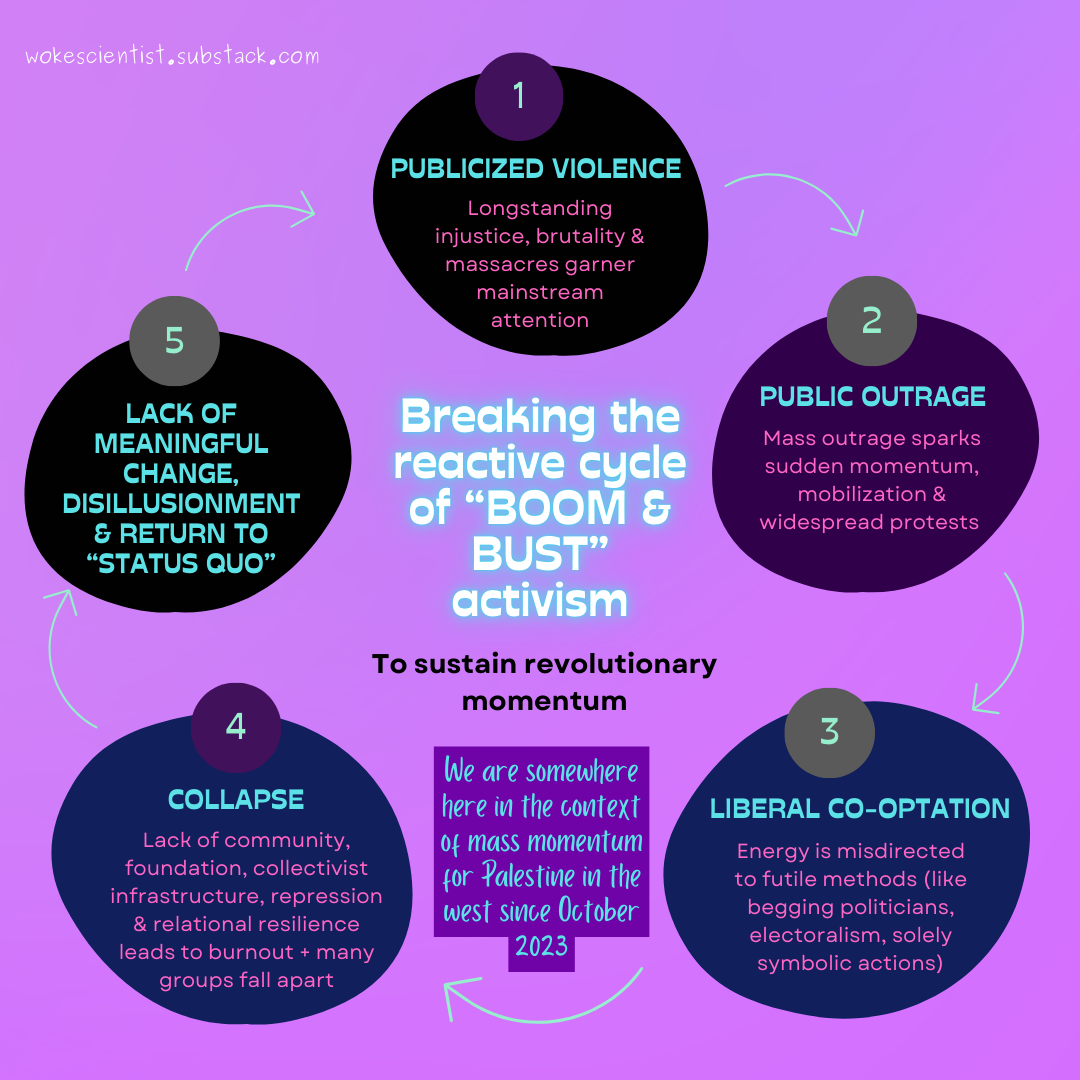
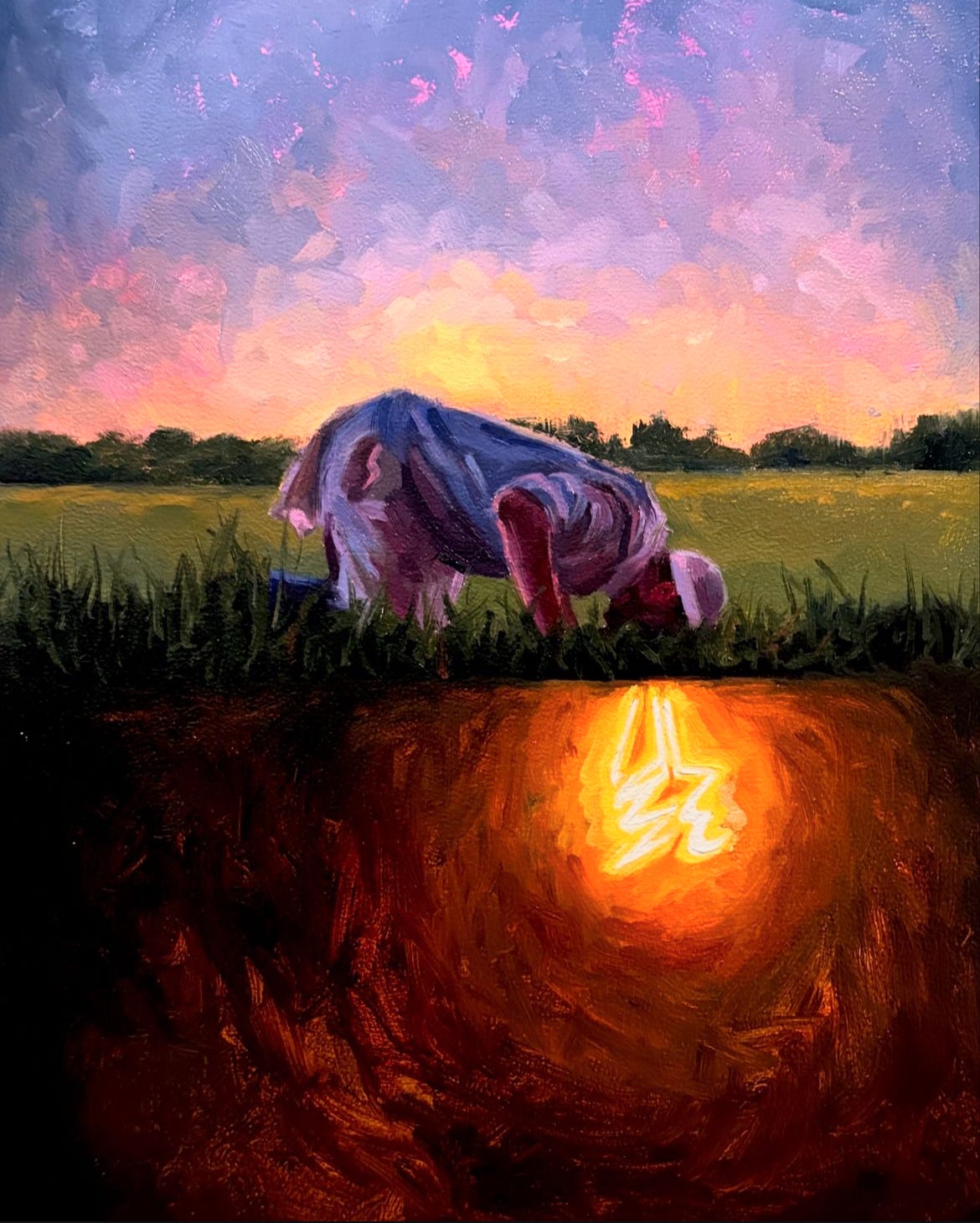
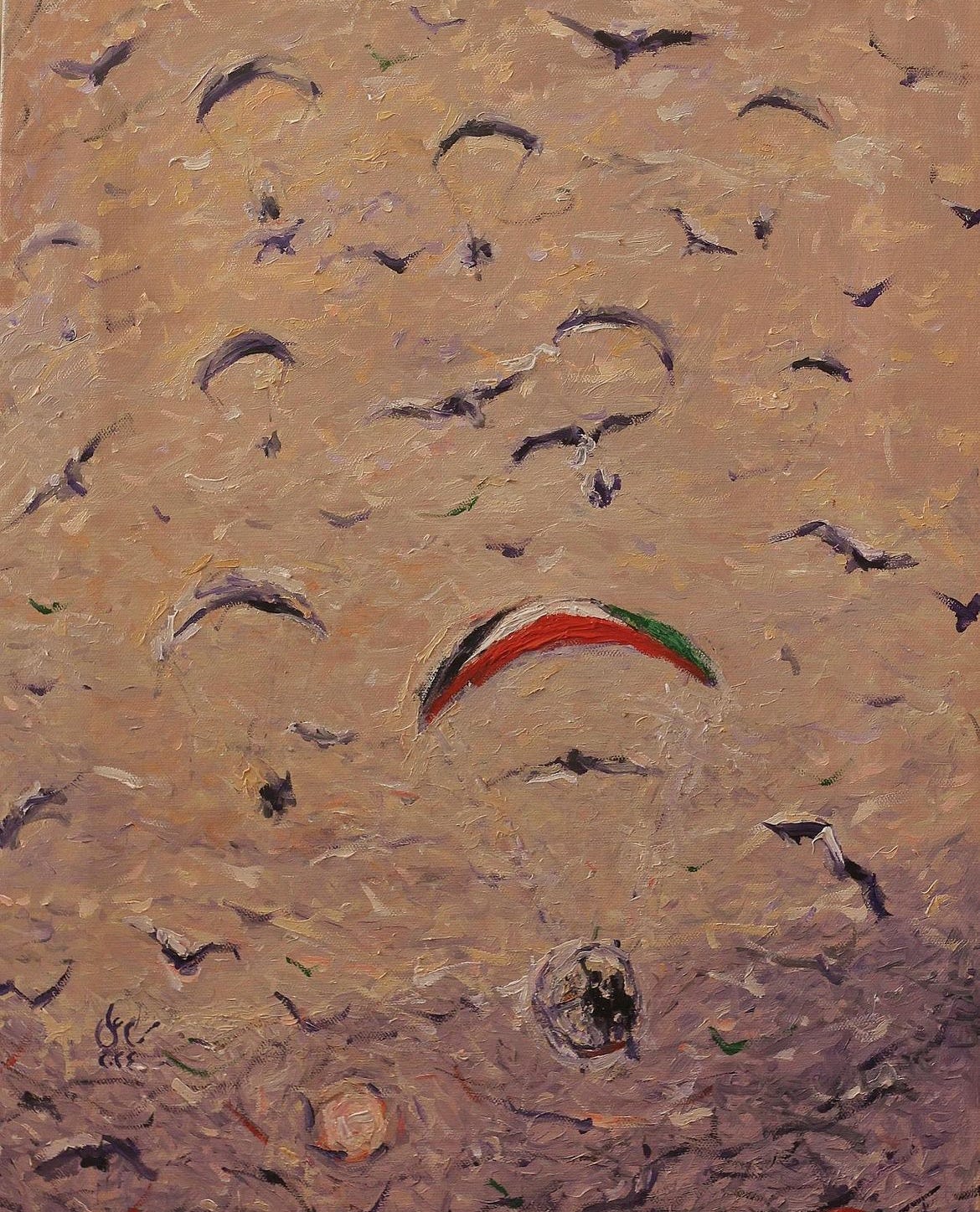


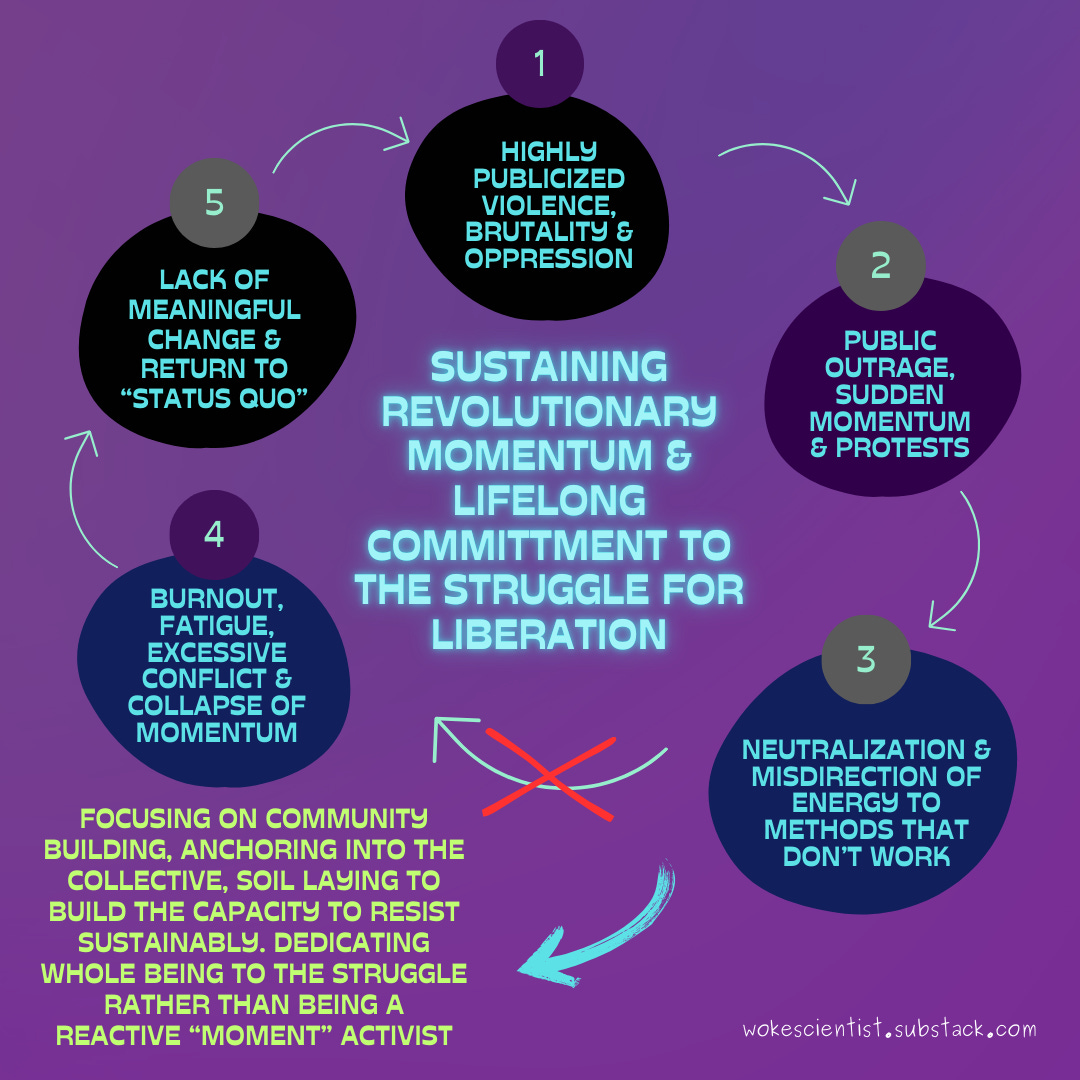
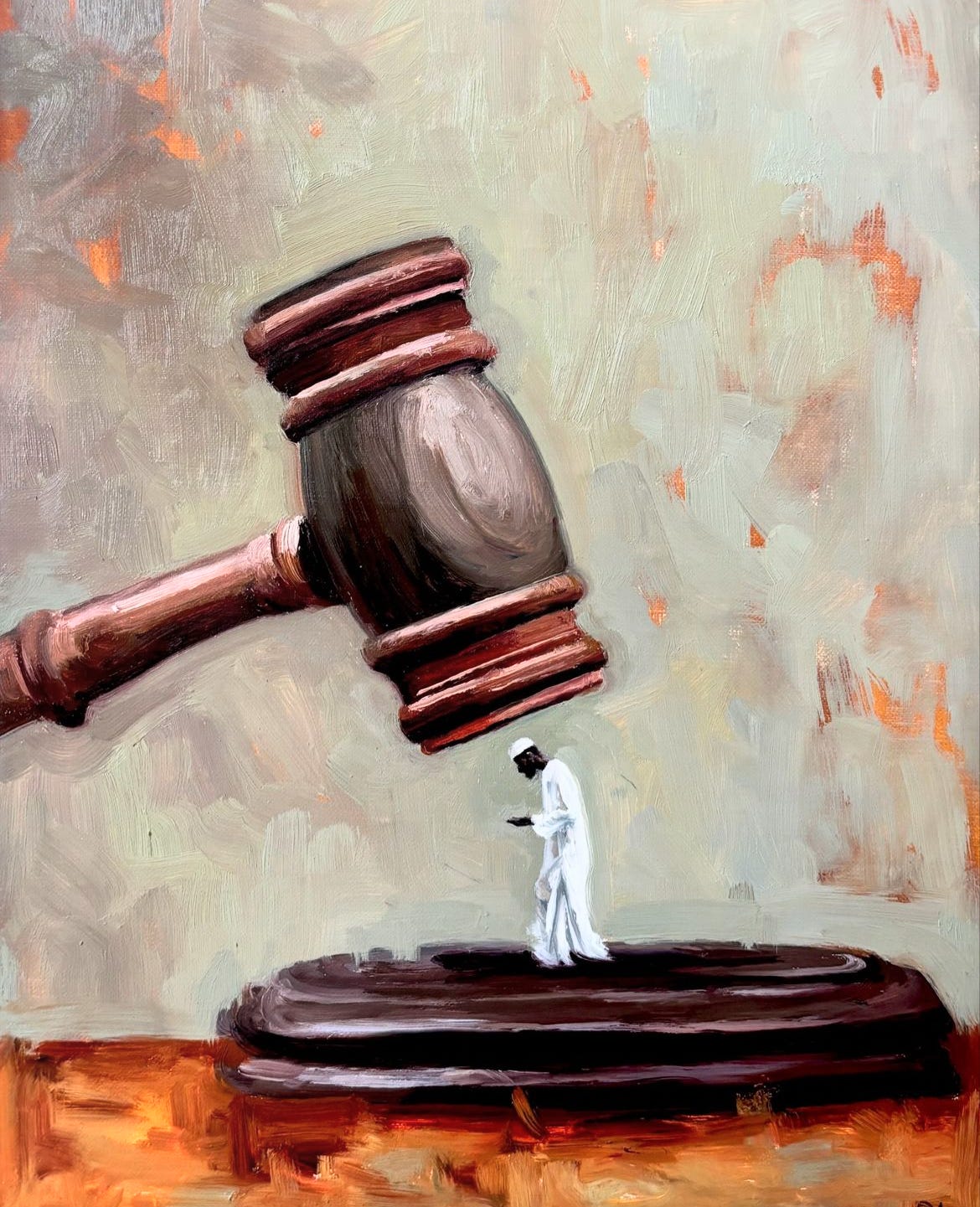
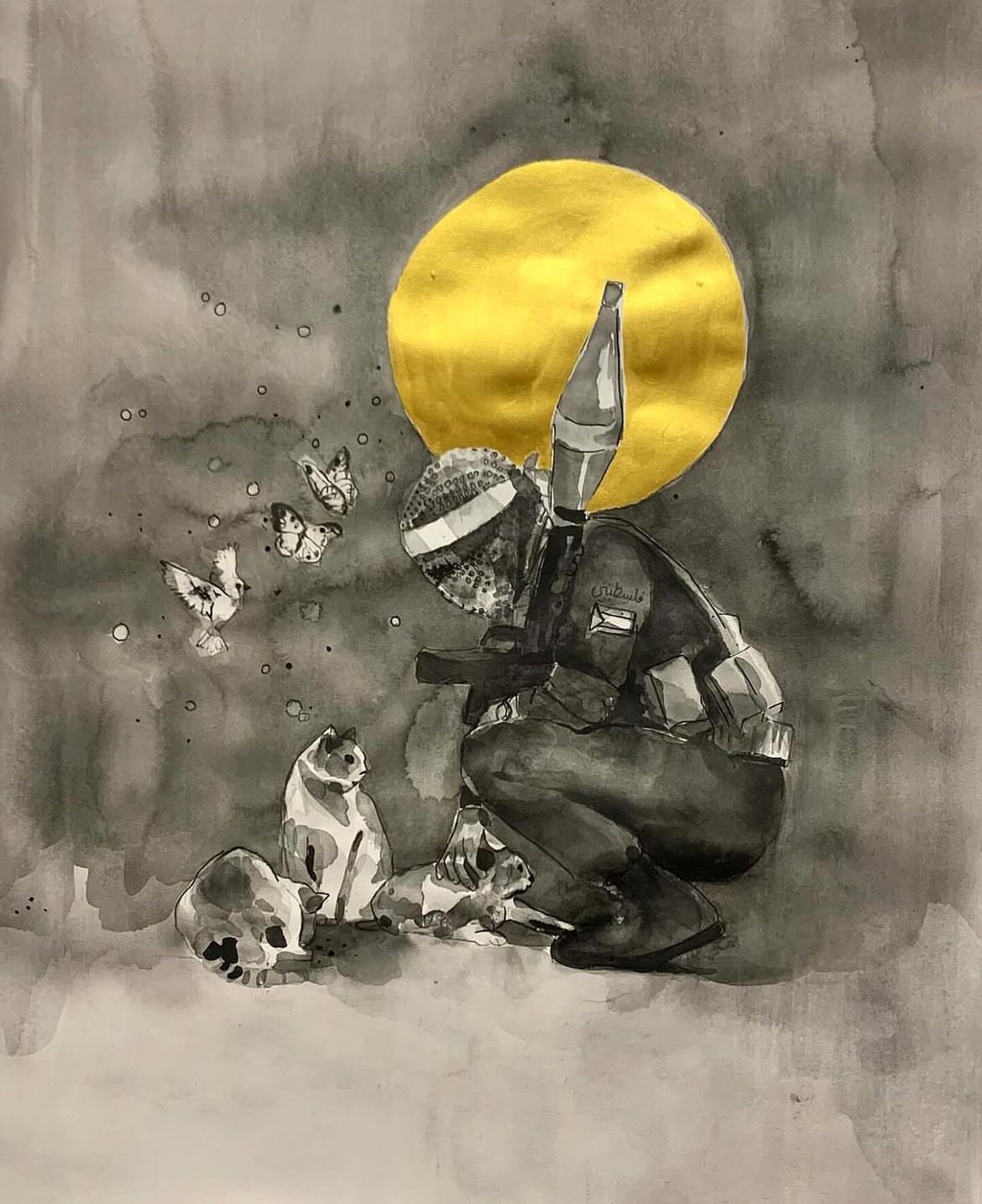
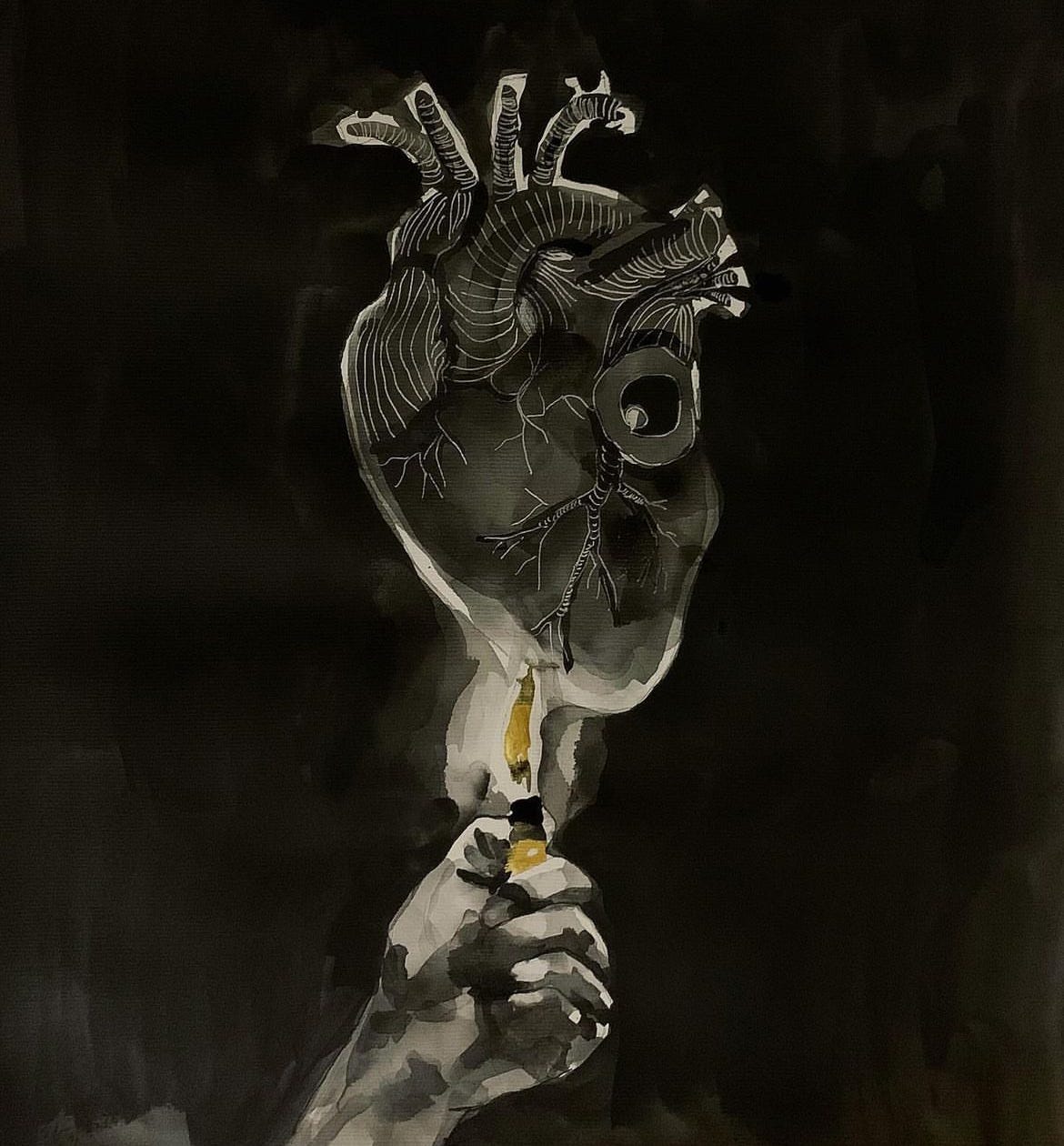

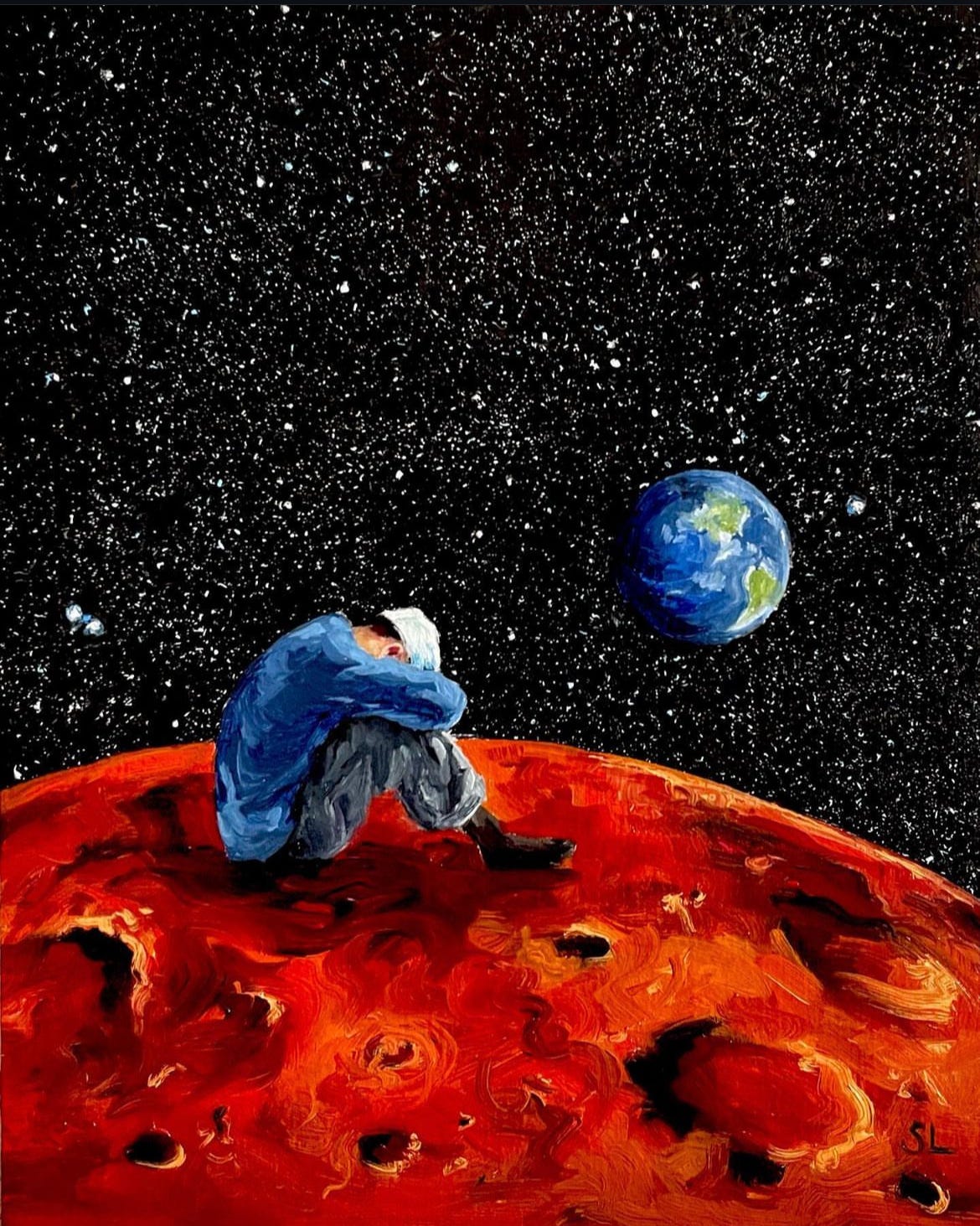
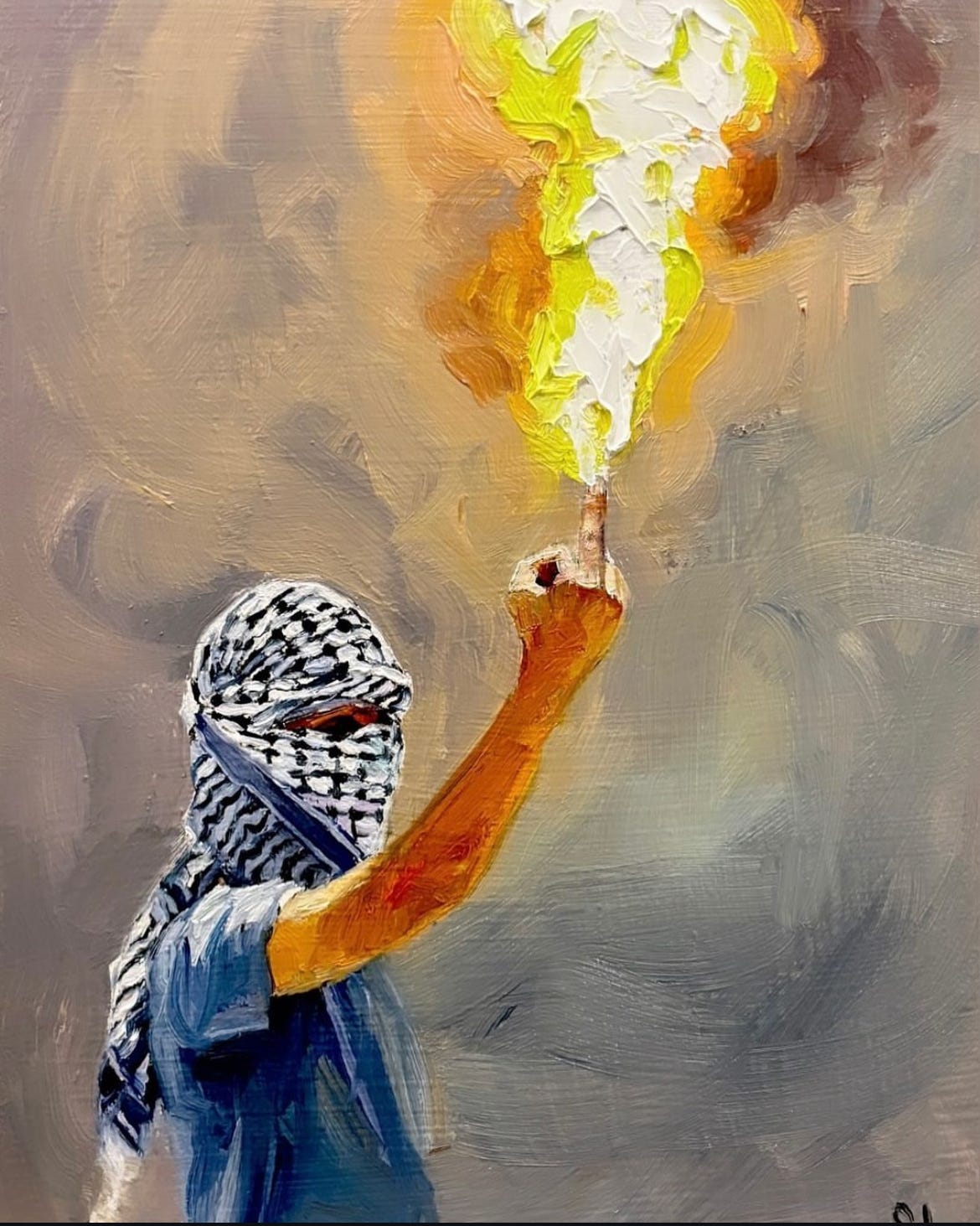

I think a critical question to me here is "who are the people?"
it's super easy to say "the people" and make that as a symbolic statement, but I think we might be served to get exquisitely clear on: who is "the people"? (it may be different for each one of us) otherwise it's just an intangible symbol that we are affixing love to, rather than those with real stories that we know and move us to act on their behalf.
Thank you, so much good food for thought here. I also loved seeing all the art you shared. Thank you.